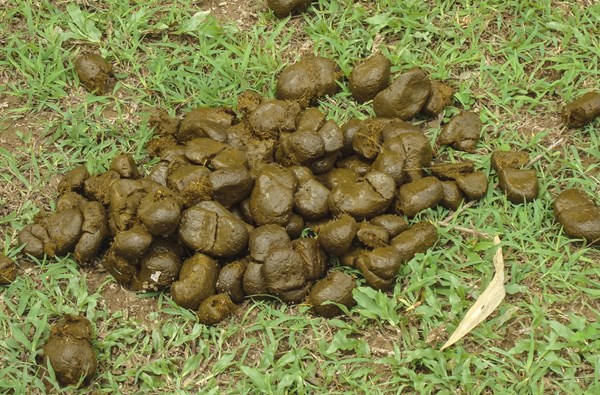
As you ready your horse for winter, you want to make sure all his preventive health needs are met. One important health task is to limit your horse’s internal parasite load. This is done through a number of strategies: a) deworming with an anthelmintic (anti-parasite chemical); b) non-chemical and environmental cleanup; and c) determination of the frequency individual horses need to be dewormed.
Detecting Shedding Category of Your Horse
There is a simple, non-invasive test that detects the number of parasite eggs in your horse’s feces. This monitoring test is best used in the spring and fall. It should be performed as long as possible following the last dose of deworming medication—that is when eggs reappear.
Collect a fresh sample of manure into a baggie, taking about 4-6 fecal balls from the top of the pile. If you can’t give it to your vet immediately, put it in the refrigerator or cooler and submit it to your veterinarian within 24 hours. You can coordinate the fecal collection around the time of your fall immunization veterinary visit so you can hand off the baggie right away.
Your veterinarian will do a fecal egg count, using a microscope to count the number of eggs per gram.
- If less than 200 eggs per gram (epg), the horse is considered a low shedder and possibly only needs deworming twice a year, in spring and fall.
- A horse with 200-500 epg is considered a moderate shedder that should be dewormed three times a year—spring, late summer and early winter.
- A high shedder has a fecal egg count of more than 500 epg and requires more intensive deworming practices, i.e., March, June, September and December.
The objective of using fecal egg counts is to limit the amount of deworming medication administered throughout the horse world in order to limit the development of anthelmintic-resistant parasites.


